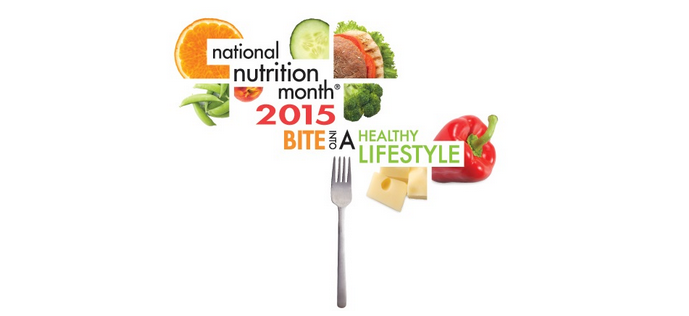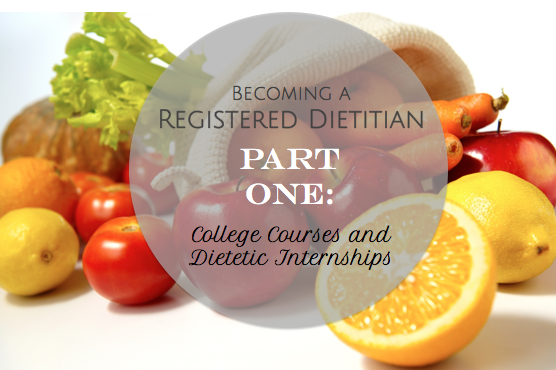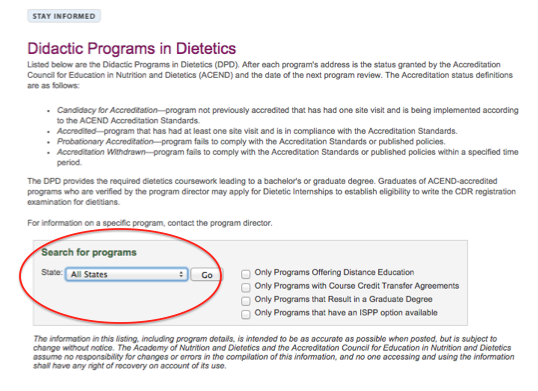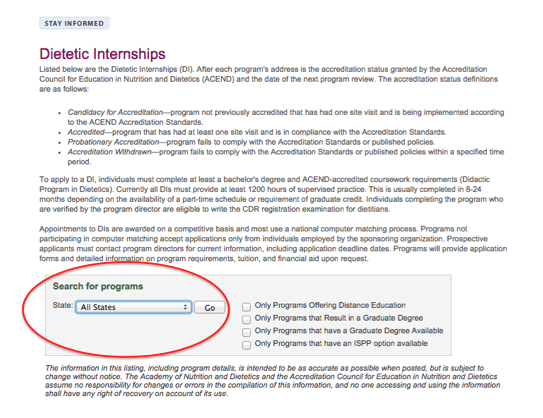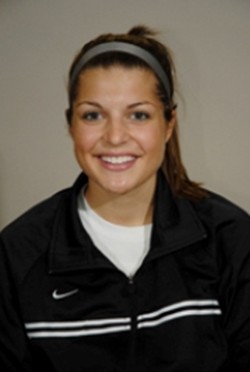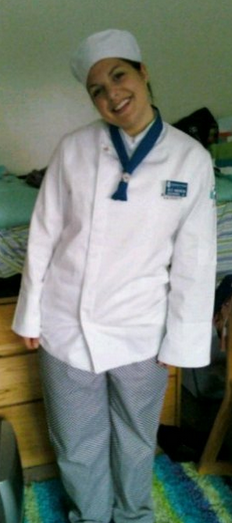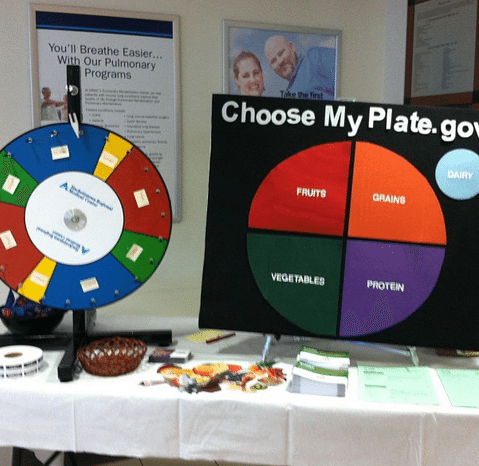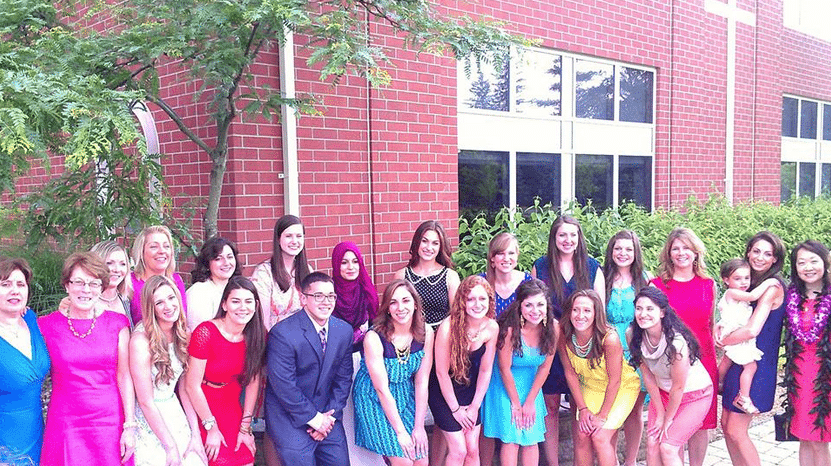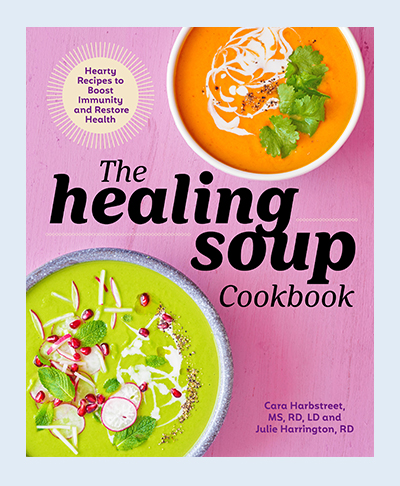Happy National Registered Dietitian Day. As we wrap up this informational series of becoming a Registered Dietitian (Part One, Part Two) to celebrate National Nutrition Month, stay tuned the rest of the month for guest RD’s to share their stories.
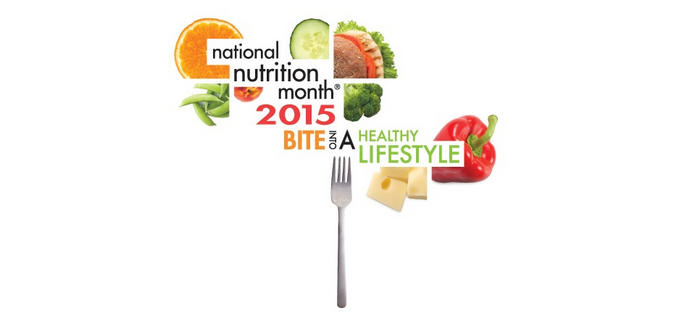
It is a special day for Registered Dietitians. March 11th is National Registered Dietitian Day!!
As the nation’s food and nutrition experts, registered dietitian nutritionists are committed to improving the health of their patients and community. Registered Dietitian Nutritionist Day commemorates the dedication of RDNs as advocates for advancing the nutritional status of Americans and people around the world.
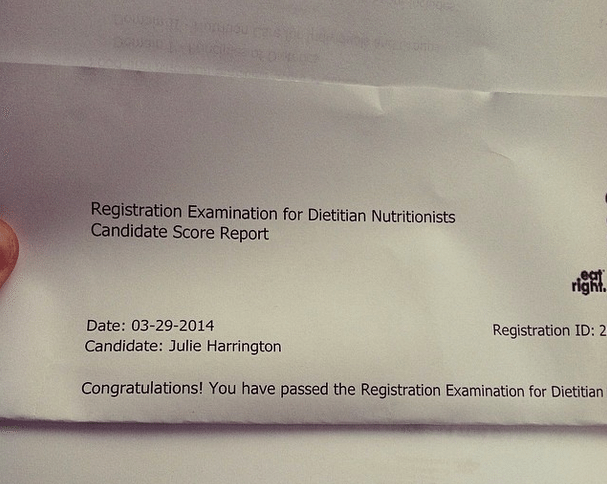
The title of this post should really be, “Life as a Registered Dietitian”. This is my first time celebrating this holiday and I am very excited.
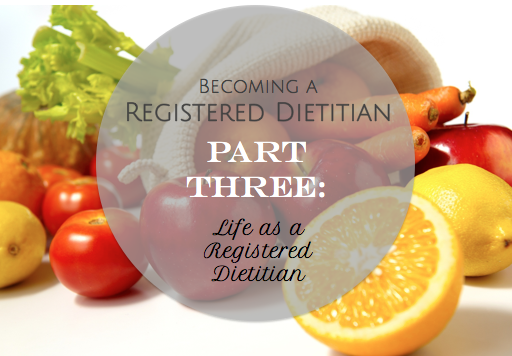
The doors have really opened up for a career in dietetics over the years.
Employment opportunities RDs or RDNs work in a wide variety of settings, including health care, business and industry, community/public health, education, research, government agencies and private practice. Many work environments, particularly those in medical and health-care settings, require that an individual be credentialed as an RD or RDN.
RDs or RDNs work in:
- Hospitals, clinics or other health-care facilities, educating patients about nutrition and administering medical nutrition therapy as part of the health-care team. They may also manage the foodservice operations in these settings, or schools, daycare centers or correctional facilities, overseeing everything from food purchasing and preparation to managing staff.
- Sports nutrition and corporate well ness programs, educating clients about the connection between food, fitness and health.
- Food and nutrition-related business and industries, working in communications, consumer affairs, public relations, marketing, product development or consulting with chefs in restaurants and culinary schools.
- Private practice, working under contract with healthcare or food companies, or in their own business. RDs or RDNs work with foodservice or restaurant managers, food vendors and distributors, athletes, nursing home residents or company employees.
- Community and public health settings, teaching, monitoring and advising the public and helping improve quality of life through healthy eating habits.
- Universities and medical centers, teaching physician’s assistants, nurses, dietetics students, dentists and others about the sophisticated science of food and nutrition.
- Research areas in food and pharmaceutical companies, universities and hospitals directing or conducting experiments to answer critical nutrition questions and find alternative foods or nutrition recommendations for the public.
(source)
/ / / / / / / /
Throughout my dietetic internship I really grew professionally. It helped me find my niche in the dietetics world. Just like any field someone knows someone, so it is always good to network and make long lasting relationships. Meeting so many professionals in the field with new preceptors almost weekly opened so many doors and opportunities.
For myself personally, I knew the clinical environment was just not for me. While I liked the action in the hospital, I wasn’t able to utilize my culinary training like I would have liked to. I looked for other options when I was applying for my first job as a Registered Dietitian.
I am now using my Registered Dietitian certification and culinary degree in so many ways.
As you many know, if you are a consistent reader of RDelicious Kitchen, I am a Supermarket RD for a grocery chain in the northeast. This job is more than I could have even dreamed of. What’s a better place to provide nutrition education, than the place they shop for all of their food! As a Supermarket RD, I provide FREE nutrition services to the customers, employees, and the community – like nutrition education classes, seminars, presentations, consultations, grocery store tours, adult cooking classes, kids cooking classes, plus so much more! Every month I provide a calendar of events for customers to participate in. Customers and employees are able to sign up for individual appointments at any time and their is no limit to how many times they are allowed to come, which is amazing, because often times insurance may only cover 2-3 visits with a RD.
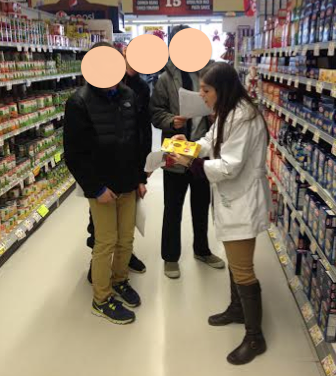
I really get to showcase my culinary training by teaching many cooking classes for adults and kids. It’s an awesome way to introduce new healthy foods to customers that they may not have seen before or too scared to try themselves. For example, one of my classes I recently used the whole grain teff, and not one person in my class had even heard about it before. Plus, I help customers learn new cooking techniques that they can utilize in their own kitchens. This is one of my favorite things to do at work.

Since I work in a grocery store full time, I like to share with my readers here what my latest “Supermarket RD Pick” is to introduce even more people to healthier choices found right in your grocery store.
Along with working as a Supermarket RD, I also work as a personal chef and recently started culinary nutrition consulting work on the side, and of course writing here at RDelicious Kitchen!
Connect with me on Linkedin!
Interested in becoming a Registered Dietitian or already on your way? Hope this mini series was helpful! Don’t hesitate to reach out if you have any questions: email – [email protected]
Stay tuned for the rest of this month as some guest RD’s will be sharing their stories!

Disclosure: I received permission by the Academy of Nutrition and Dietetics for use of NNM logo.

